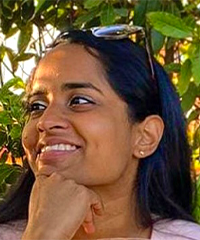What our students thought: Economics and Policy of Energy and the Environment MSc
22 November 2021
What is it like to study the Economics and Policy of Energy and the Environment MSc? Read the reflections of our alumni and programme lead Dr Lorenzo Lotti as we celebrate the teaching at UCL ISR over the last decade.
“In 2022, we will welcome the tenth cohort of our MSc programme "Economics and Policy of Energy and the Environment" (EPEE). Over the years, EPEE has become an internationally recognised programme, repeatedly praised by external examiners as one of the best in its field. Hundreds of students have learnt from our world-class academics, becoming leaders and innovators in business, policy and research. Thanks to our interdisciplinary and diversified environment, our programme equips MSc EPEE students with what is needed to excel and make their own contribution to making this world a better place. At the same time, in-class discussions make our research-led teaching special for our staff, with many colleagues still collaborating with alumni after several years. We know that the programme will continue to evolve and improve and, together with our alumni, will contribute to making our societies more sustainable and equitable”.
Lorenzo Lotti, EPEE Programme Lead
What our alumni say
What are the biggest sustainable resources challenges and opportunities facing society today?
Vivek
“With over 750 million people still without access to electricity across the globe, one of the major challenges that remains is supporting the least developed regions to gain access to energy services in a climate friendly manner. Despite contributing the least to climate change, developing countries face the most devastating impacts. So it is important that international climate objectives are achieved in conjunction with tackling environmental and social justice challenges faced in developing nations. Recent cost reductions and technological progress in renewable energy brings an opportunity for developing nations to achieve economic development by leapfrogging highly polluting fossil fuels. Aside from this, the determined nature of younger generations worldwide, through movements such as Fridays for Future, have ensured that climate change can no longer slip down the political agenda and have begun to hold policymakers accountable for addressing the ongoing climate crisis and ecological breakdown.With over 750 million people still without access to electricity across the globe, one of the major challenges that remains is supporting the least developed regions to gain access to energy services in a climate friendly manner. Despite contributing the least to climate change, developing countries face the most devastating impacts. So it is important that international climate objectives are achieved in conjunction with tackling environmental and social justice challenges faced in developing nations. Recent cost reductions and technological progress in renewable energy brings an opportunity for developing nations to achieve economic development by leapfrogging highly polluting fossil fuels. Aside from this, the determined nature of younger generations worldwide, through movements such as Fridays for Future, have ensured that climate change can no longer slip down the political agenda and have begun to hold policymakers accountable for addressing the ongoing climate crisis and ecological breakdown."
Shanali
“Working at FAO has solidified my belief that achieving sustainable and climate-resilient agri-food systems are one of the biggest challenges we are currently facing. Agri-food systems contribute to climate change, biodiversity loss and land degradation, which in turn contribute to the increasing climate vulnerability and food and livelihood insecurity of millions of people who depend on these systems. Increasing food demand in the future is likely to drive further pressures on agri-food systems, and so responding to these challenges requires transforming agri-food systems in a way that they become part of the solution. Climate change mitigation efforts to reduce greenhouse gas emissions from agri-food systems will need to occur in parallel with increasing the resilience and productivity of agri-food systems to meet projected demand. Fortunately, there are already numerous opportunities to do so. Taking agriculture as an integral part of the agri-food system, we have the opportunity to scale up solutions such as climate-smart agriculture, agroecology, regenerative agriculture, nutrition-sensitive agriculture, and nature-based solutions to build resilient ecosystems. A full transformation, however, will require new types of thinking, solutions and innovation in all facets of the agri-food system."
Irina
“I think that one of the major challenges of future low-carbon energy systems is the increased material intensity. As renewable technologies require more metals and minerals, which need to be reused or recycled, this should lead to the wide adoption of new circular-based economy business models."
Links
- Find out more about the EPEE MSc
- Find out more about 10 years of UCL ISR
- Dr Lorenzo Lotti's academic profile
 Close
Close




